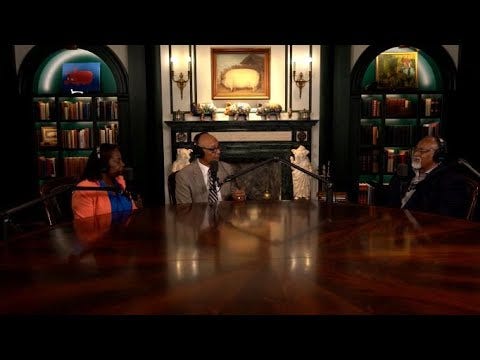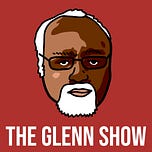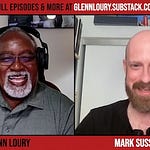Earlier this year, I announced that I would be donating 10% of the net income from this newsletter to the Woodson Center to support the vital work that they do. I also want to use the newsletter and TGS as a platform to promote the work of Woodson Center-affiliated organizations that are making change on the ground in communities around the country. My first guest in what I hope will be a long ongoing series is Sylvia Bennett-Stone, Director of Voices of Black Mothers United, who is joined by Robert Woodson himself. Sylvia and Bob were on hand at the recent Old Parkland Conference, where I had the honor of speaking, so we sat down for an in-person discussion. (You can also read the great essayist Gerald Early’s account of the conference). I had Sylvia on the show last year, but VBMU’s work supporting mothers who have lost children to violent crime is so powerful and so important that I thought it appropriate to have her back.
Bob begins by introducing the mission of the Woodson Center, which provides support to “social entrepreneurs” who work within communities to help solve the toughest problems facing them today: crime, poverty, academic achievement, and many others. Sylvia then talks about a recent five-city tour that she undertook with VBMU to support victims of violence and to raise awareness for victims’ rights. Sylvia recounts how the loss of her daughter moved her to reach out to help other mothers who are suffering. Sylvia is clear that, in order to prevent more deaths, more police are needed in black communities, and good relations need to be maintained between law enforcement and the people they serve. As Bob points out, contrary to what many progressive activists claim, efforts to defund the police are unpopular in black communities with high crime rates. The subject of forgiveness comes up more than once in this conversation. Sylvia and Bob tell me about instances in which the mothers of slain children not only forgive the perpetrators but sometimes reach out to them in prison. This remarkable fact suggests to me that there is a strong Christian influence in VBMU, which Sylvia and Bob affirm, though Sylvia notes that they support whoever needs their help, regardless of religious affiliation. I wonder why, given the importance of Christianity in many black communities, we hear so little about it in the media. We end with a final word from Sylvia, who urges anyone struggling with the pain of losing a child to reach out to VBMU.
Sylvia and Bob are doing vital, necessary work, and I am so proud that all of us here are able to support them. And if you want to make additional donations, please visit the websites for the Woodson Center and Voices of Black Mothers United.
Unfortunately, we only had a little over a half hour for our conversation. So to round out this week’s episode, I’m including a speech I delivered when I accepted the Bradley Prize in a ceremony in Washington, D.C. earlier this month. It was a tremendous honor, and I want to share the moment with all of you here.
Ten percent of net revenue from this newsletter goes to support the Woodson Center and programs like Voices of Black Mothers United. To help support these absolutely essential organizations, become a subscriber to this newsletter, or donate directly to the Woodson Center and Voice of Black Mothers United.
0:00 The work of the Woodson Center
2:26 Sylvia’s recent five-city tour to support victims of violence
4:40 How tragedy moved Sylvia to start Voices of Black Mothers United
9:29 Sylvia: We must work with the police in our communities
13:38 What role does race play in VBMU’s work? And where are the fathers?
18:20 The importance of forgiveness in the healing process
22:07 How VBMU is reaching out beyond black communities
25:23 Sylvia: The pain of mothers who lose children to police violence is no different than mine
28:39 Glenn: Why do we hear so little about Christian faith’s role in healing?
34:10 Glenn's Bradley Prize acceptance speech, May 17, 2022
Links
Voices of Black Mothers United















Share this post